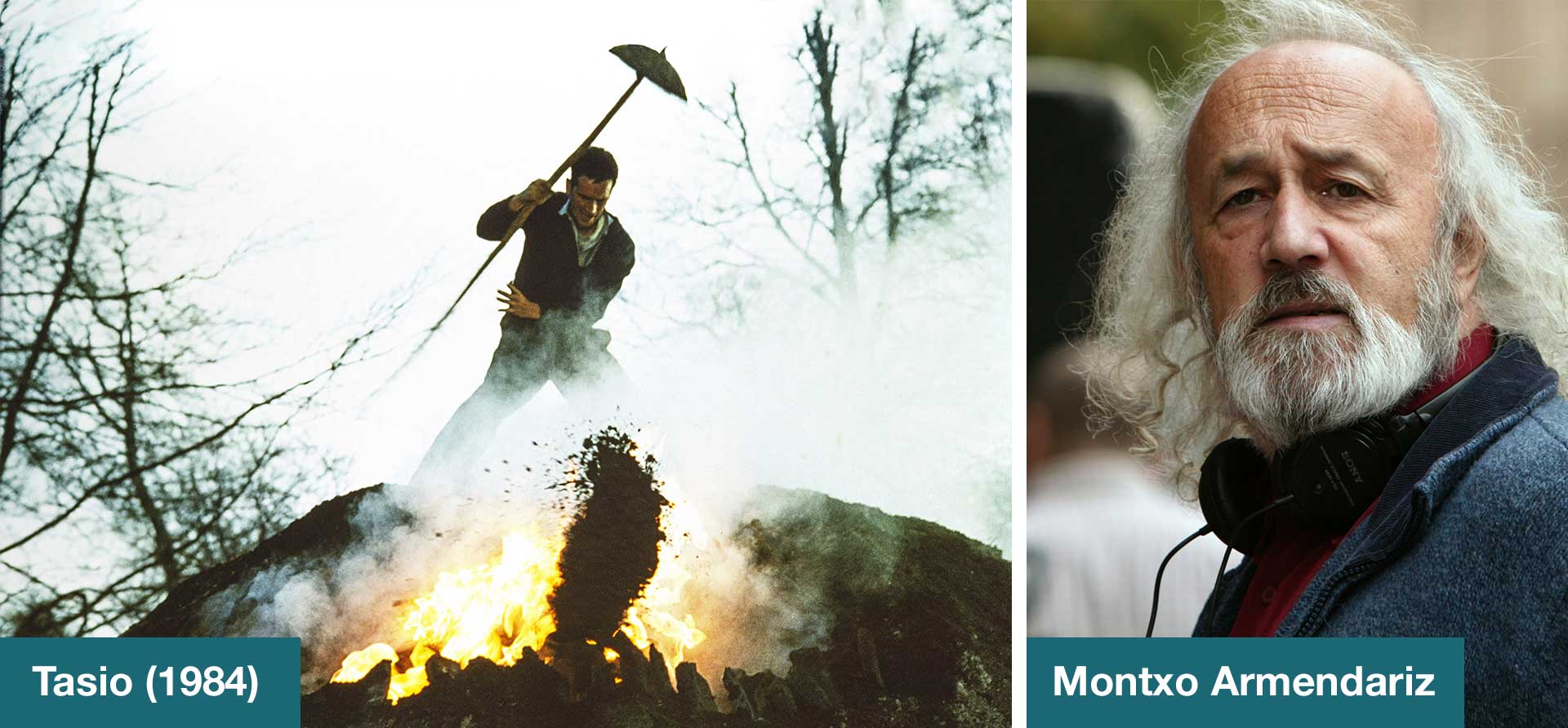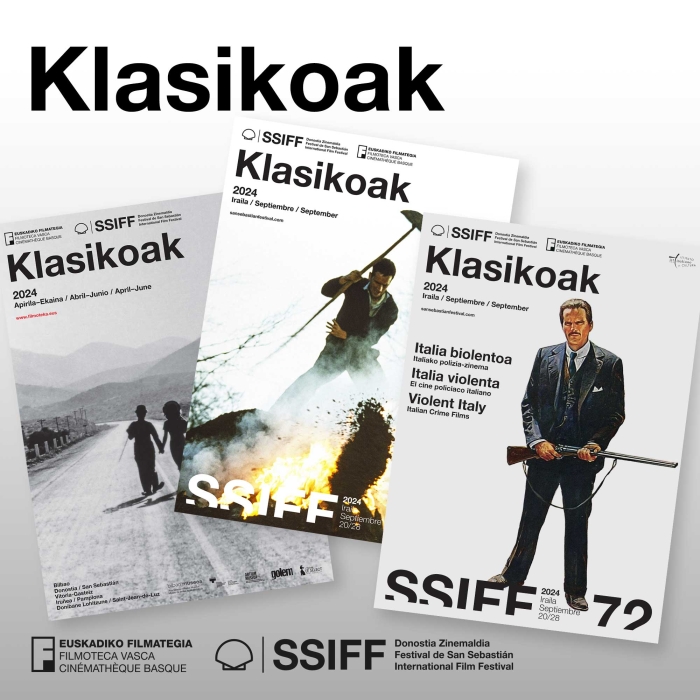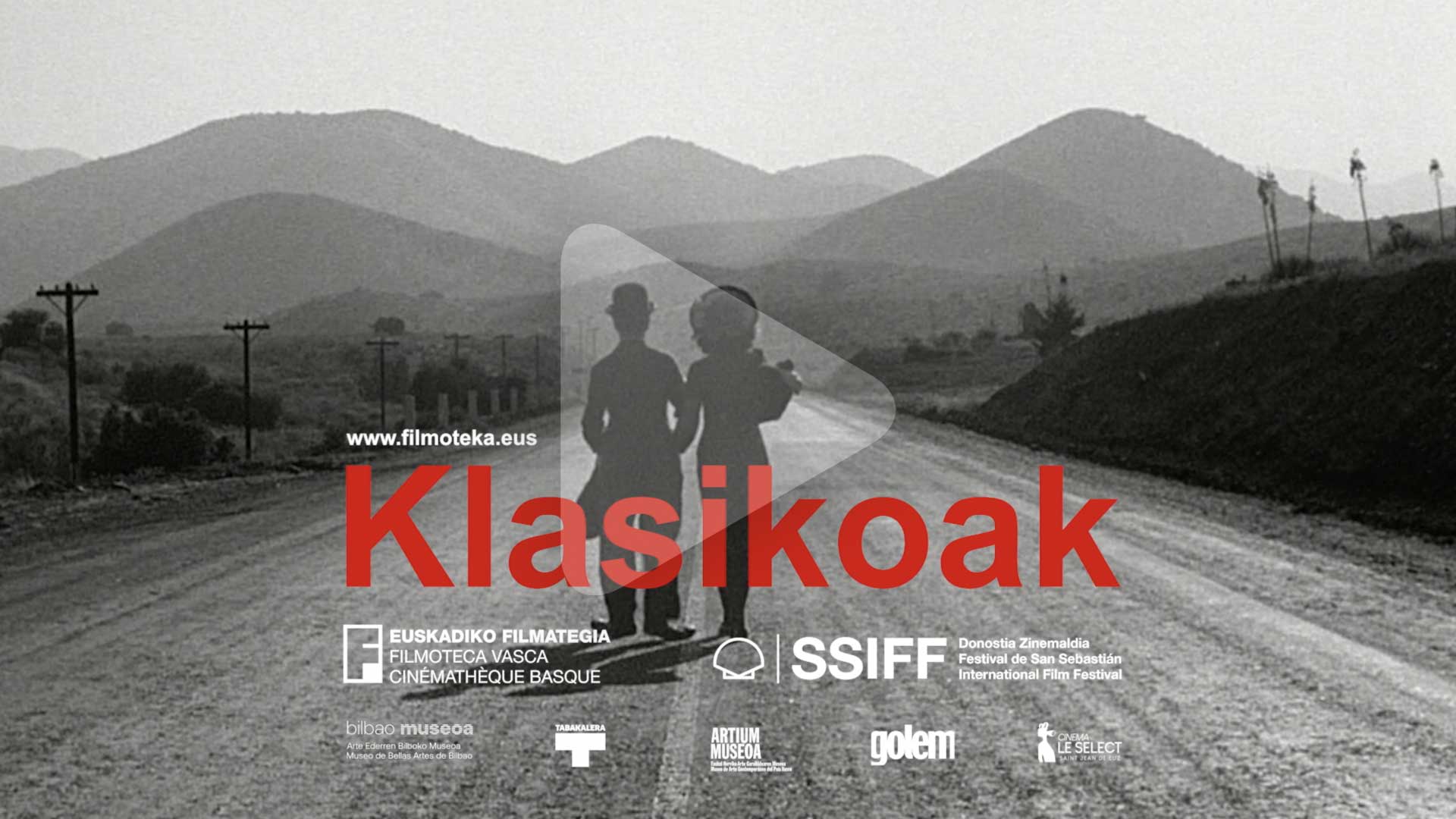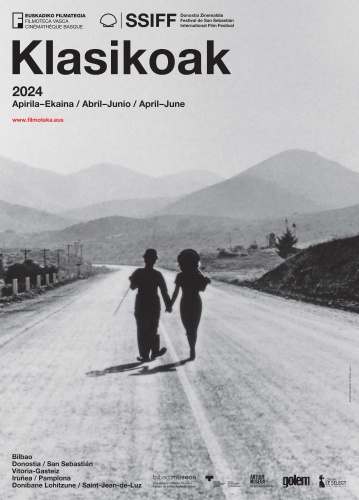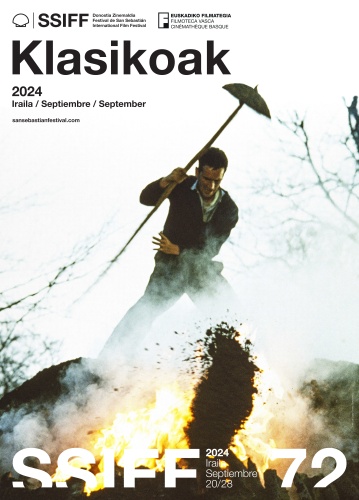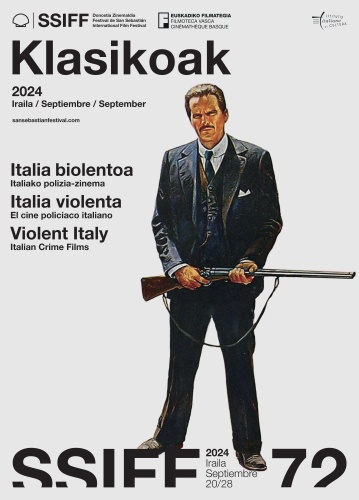Between April and September through the Klasikoak programme the San Sebastián Festival and the Basque Film Archive will be offering more than 50 films and 120 screenings of old and modern classics, not only highly acclaimed films but also (re)discoveries. The Klasikoak label groups together the cycle of twelve restored films that, from April to June, the Film Archive has been programming up to now under the name of the Lumière Sessions at Artium Museoa in Vitoria-Gasteiz, the Museum of Fine Arts in Bilbao, Tabakalera in San Sebastián, the Cines Golem in Pamplona and the Cinéma Le Sélect in Saint-Jean-de-Luz, as well as two cycles that will be held in September within the framework of the San Sebastián Festival. On the one hand, the retrospective devoted this year to the poliziesco, entitled Violent Italy. Italian Crime Films. And on the other, the Klasikoak screenings during the Festival which, since the 66th San Sebastián Festival, have included films like Akai Tenshi / The Red Angel, by Yasuzo Masumura, or Sátántangó, by Béla Tarr, among others.
So, this is a classic film festival extended in time and space. Klasikoak is heir to the historic tradition established by the San Sebastián Festival of rediscovering work by filmmakers, periods, themes or film languages, that it put into practice more or less right from the very start, with the retrospective devoted to René Clair in 1959, and the decisive commitment by the Basque Film Archive both to restoring and disseminating films.
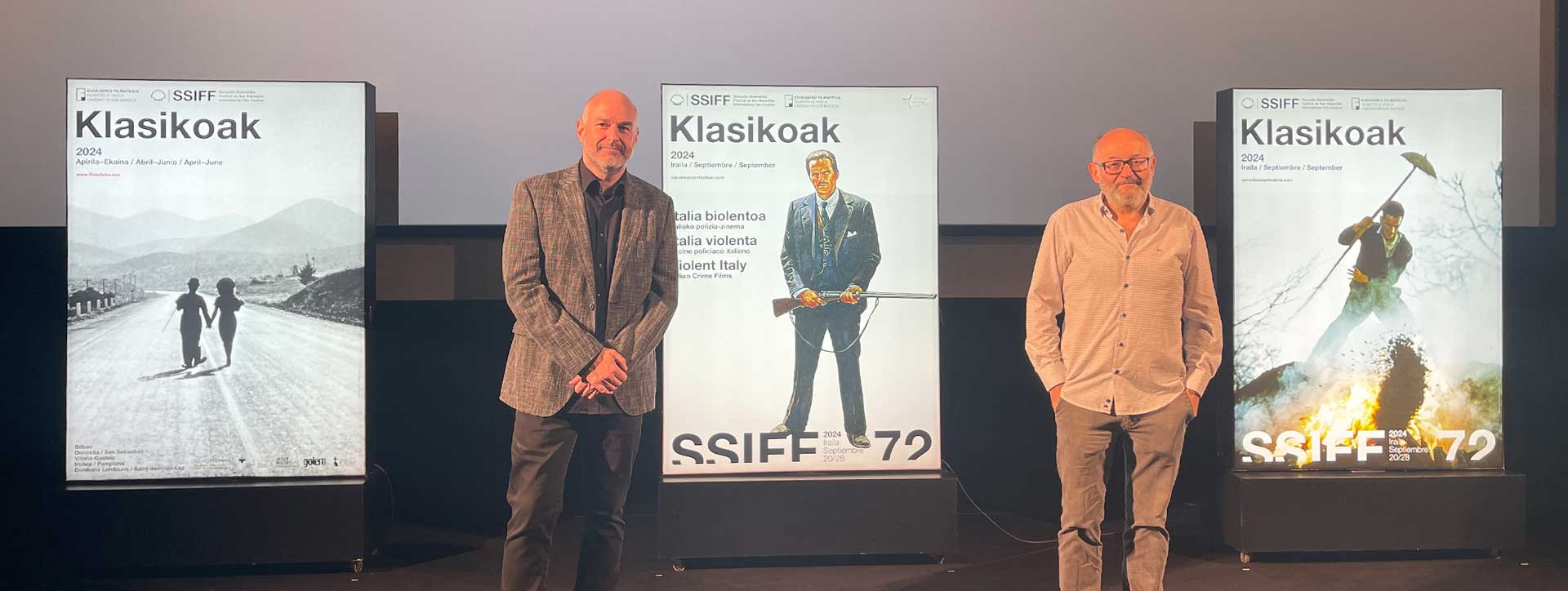
As well as the screenings, a book will be published linked to Violent Italy. Italian Crime Films, written by Felipe Cabrerizo, who will curate the cycle together with Quim Casas, and in September a space will be opened up for debate and discussion about the restoration, preservation and dissemination of our film heritage.
According to Joxean Fernández, the director of the Basque Film Archive, “the Klasikoak cycle is going to bring all-time-classic cinema to the present for us and it’s going to do this, to a large extent, thanks to a collaborative network with other international film archives who are going to present their restored films”. “Cinema is younger than other arts, but it also has its classics and being able to watch them in the conditions that they were intended for (film theatres, good copies, original versions, etc.) is essential for the task of passing on film culture by our institutions”, he added.
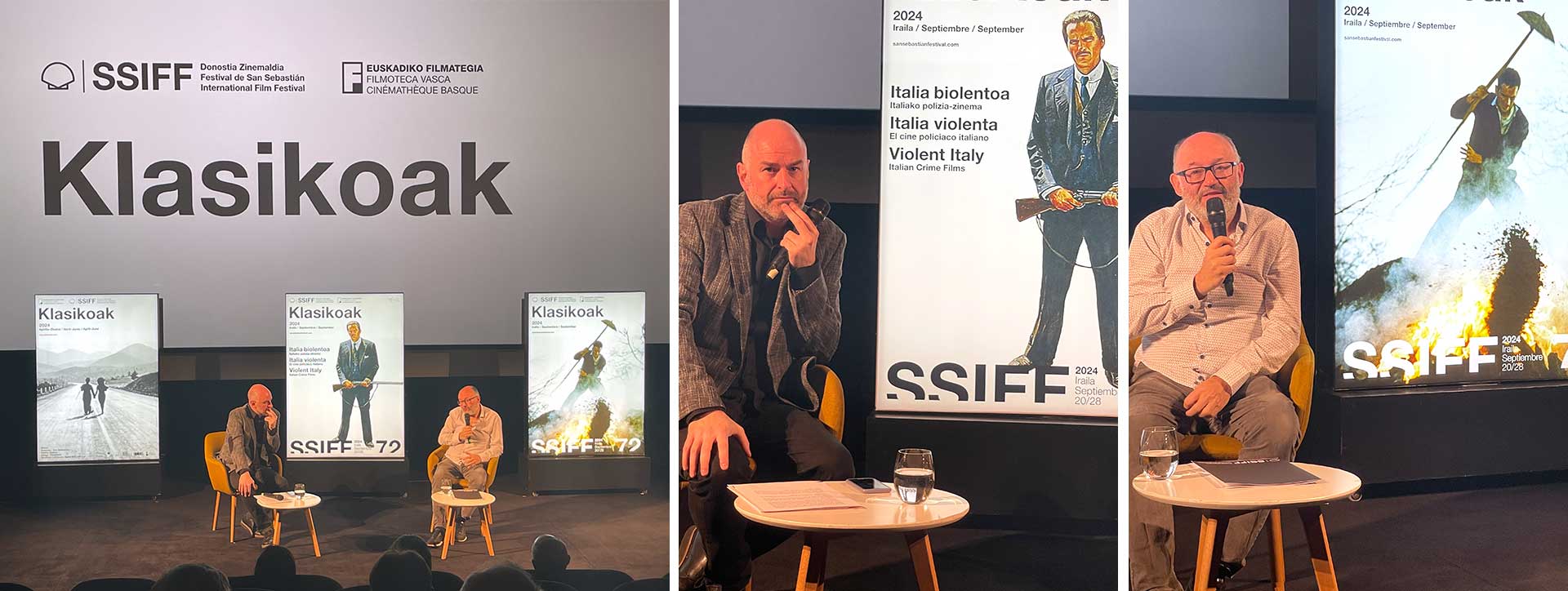
For his part, José Luis Rebordinos, has said that the Klasikoak programme is “proof that when two institutions like the Basque Film Archive and the San Sebastián Festival work together they can go further and strengthen projects that they carry out separately and make them more meaningful”.
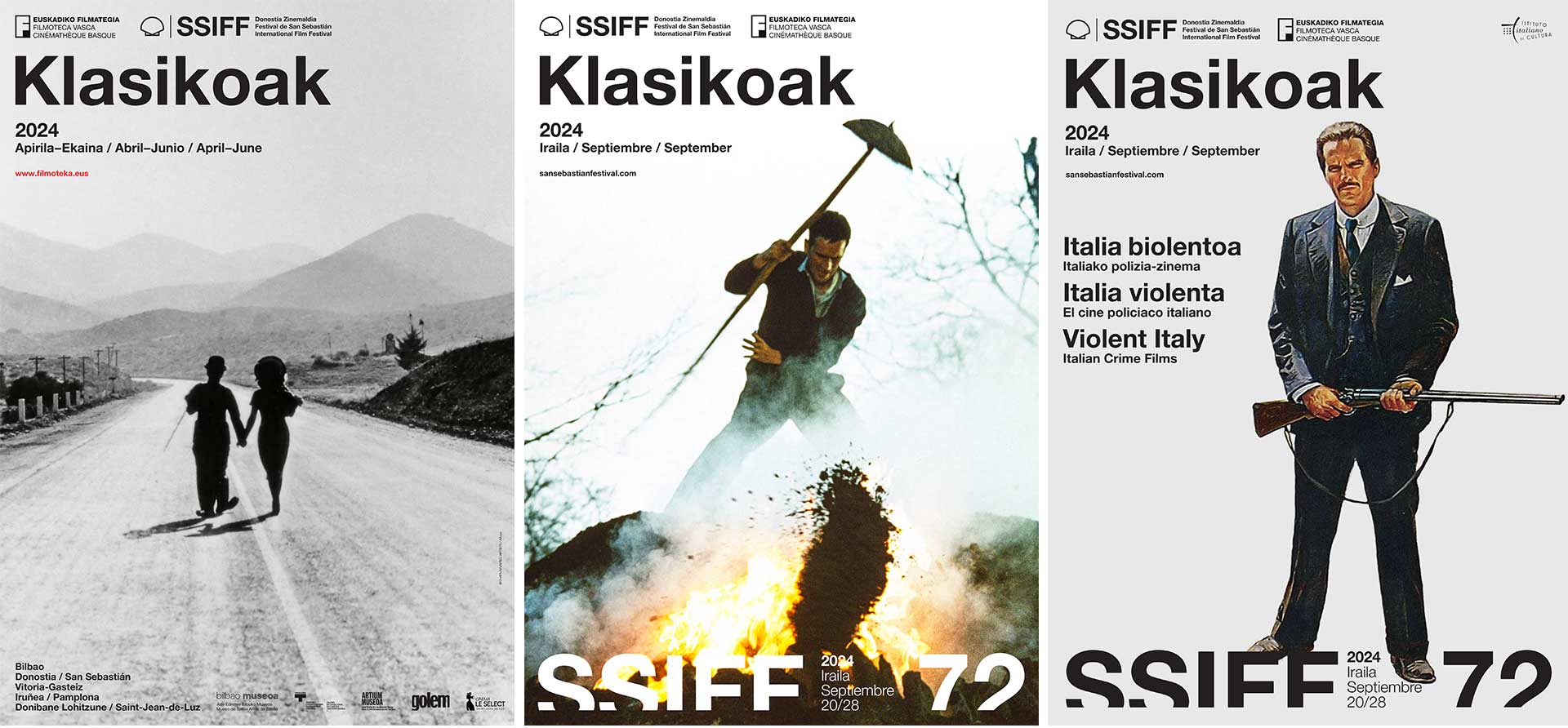
Klasikoak from the Basque Film Archive between April and June
Between April and June, the Basque Film Archive, in collaboration with the San Sebastián Festival, will be extending an invitation to revisit and discover twelve films that will be screened in Vitoria, San Sebastián, Bilbao, Pamplona and San-Jean-de-Luz. After the successful collaboration with the Lumière Institute in Lyon that resulted in the Lumière Sessions that have taken place in the last two years, the Film Archive is once again taking a look at twelve films; some that are well-known and others that are still to be explored.
Among these canonical proposals the film that will kick off the cycle on the 5th of April at Tabakalera stands out: Modern Times (1936), one of Charles Chaplin’s masterpieces, his last silent film, which has been restored by the Bologna Film Archive.
Esa pareja feliz / That Happy Couple (1951), the debut film by Juan Antonio Bardem and Luis García Berlanga, a classic restored by the Spanish Film Archive, will be presented in San Sebastián and Bilbao by the director of this institution, Valeria Camporesi.
It will also be possible to enjoy masterpieces like Peeping Tom (Michael Powell, 1960), according to Scorsese “a shock to the system, and an absolutely lucid picture about the danger or making art”; Cross of Iron (Sam Peckinpah, 1977) and The Apartment (Billy Wilder, 1960), a film that will be presented in San Sebastián and Bilbao by the critic and historian Luis Alegre.
The proposals to be discovered include Les Ordres / Orders (Michel Brault, 1974), a multi-award-winning film, recently restored by the Quebec Film Archive, that this year is fifty years old. Among other awards, it shared with Costa-Gavras the best director’s award at Cannes (Section spéciale / Special Section, 1975).
L'inconnu de Shandigor / The Unknown Man of Shandigor (Jean-Louis Roy, 1967) will be coming from the Swiss Film Archive. It will be presented by Fréderic Maire, director of the Swiss Film Archive and ex-president of the International Federation of Film Archives (FIAF). And from the Lumière Institute: Adieu, Chérie / Goodbye, Darling (Raymond Bernard, 1946).
The Basque Film Archive will also be retrieving Classe tous risques / The Big Risk (Claude Sautet, 1960), the only film by the French director that could not be screened in the retrospective that the San Sebastián Festival devoted to him in 2022.
Klasikoak will also be including screenings of Koibumi / Love Letter (Kinuyo Tanaka, 1953), which competed at Cannes in 1954; Sur (Fernando E. Solanas, 1988), described by its director as “an ode to appreciating life”; and Not a Pretty Picture (Martha Coolidge, 1976), a gem that has been difficult to find up to now that has been restored in 4K by the Academy Film Archive and The Film Foundation. The latter film will be presented in Bilbao and San Sebastián by Irati Crespo, the coordinator of the San Sebastián Festival Artxiboa project.
Tickets can be purchased on line and at each film theatre, except for the Bizkaia Aretoa: physical tickets for screenings in Bilbao will be on sale at the Museum of Fine Arts in Bilbao.
The 2024 retrospective, the ‘poliziesco’
From the 20th to the 28th of September, during the 72nd Festival, in collaboration with the Istituto Italiano di Cultura, it will be possible to see the Violent Italy. Italian Crime Films cycle, a selection of between 20 and 25 films from a genre that provided an accurate portrayal of the country that even today still needs to be reexamined from a contemporary perspective. After surviving Fascism and the post-war period, the Italian crime film seemed to achieve its canonical form with the film by Pietro Germi, Un maledetto imbroglio / The Facts of Murder (1959), the first one that moved away from imitating French Noir to establish a model of its own that was to open up a genuine golden age for the genre. It was to evolve in sync with the politics and society of the country from then on: if the Italy of the economic boom shifted it to urban settings and reflected the early onset of organized crime and criminality, the May 1968 unrest, which was particularly vicious in Italy, meant that it would take a political turn thanks to directors like Francesco Rosi or Damiano Damiani.
The Golden Palm and the Oscar for Best Foreign Language Film that Indagine su un cittadino al di sopra di ogni sospetto / Investigation of a Citizen Above Suspicion (Elio Petri, 1970) won seemed to mark the end of the genre, but far from it becoming ossified, this would open it up to new variations: if the orthodox crime film was to continue thanks to directors like Fernando Di Leo, mafia movies would take it along previously unknown paths. After winning the Silver Shell at the San Sebastián Festival, La polizia ringrazia / Execution Squad (Steno, 1971) would open up the potential of the poliziottesco, that reflected the turmoil caused by the emergence of terrorism depicted in accordance with the parameters established by the American generation of violence.
Opening with ‘Tasio’ in September
In addition to this, a classic will also be screened each day as part of the Festival. The section will open with Tasio (1984), the film directed by Montxo Armendariz, to coincide with the 40th anniversary of its premiere at the San Sebastián Festival, where it formed part of its Official Selection. This section, which since 2018, has recovered old and modern classics from the history of universal cinema, has in the last five years programmed films like Akai Tenshi / The Red Angel, 1966), by Yasuzo Masumura; Principio y fin / The Beginning and the End (1993), by Arturo Ripstein; Érase una vez... (1950), by Alexandre Cirici Pellicer and Josep Escobar; Festival en las entrañas (1963-1965), by José Val del Omar; Nueve cartas a Berta / Nine Letters to Berta (1966), by Basilio Martín Patino; Fúria espanyola / Spanish Fury (1975) by Francesc Betriu; Manicomio / Asylum (1953), by Fernando Fernán-Gómez and Luis María Delgado; Sátántangó (1994), by Béla Tarr or Lumière! L'aventure commence / Lumière! The Adventure begins (2016), by Thierry Frémaux, whose screening provided the starting point for this programme.
